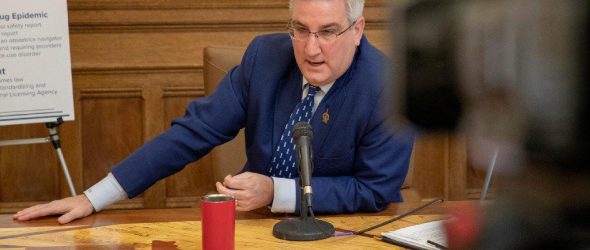CARMEL — Police stop a driver westbound on 96th Street in Hamilton County. They find less than an ounce of marijuana and this driver in arrested, complete with a stay in the county jail, facing thousands of dollars of legal bills, court costs, fines and a criminal record.
Police stop an eastbound driver on 96th Street in Marion County. They find a doobie on the console. He is not arrested, faces no charges, legal bills, court costs or fines.
That is the evolving state of marijuana prohibition in Indiana. It’s like swiss cheese, with a big hole in the middle and others likely to form in college and border cities.
Acting Marion County Prosecutor Ryan Mears, then an unelected official, abruptly announced that his office will no longer prosecute marijuana possession cases of under one ounce, which was quickly reinforced by Sheriff Kerry Forestal. Indianapolis Metropolitan Police Chief Bryan Roach said his force would still make marijuana arrests. But after Mears dismissed nearly 150 possession cases, it’s only a matter of time before the arrests stop. The cops I know aren’t big fans of doing the paperwork, only to watch an offender go free.
Gov. Eric Holcomb has vividly signaled he will ardently protect marijuana prohibition in the Hoosier state while its neighbors on three sides legalize recreational marijuana.
In my July interview with Holcomb, he made it clear he wouldn’t consider medicinal legalization without more research, even though the original federal scheduling of marijuana in the same class with heroin in the 1930s wasn’t based on credible medical studies at all. In fact, it was opposed then by the American Medical Association.
The natural compromise position — decriminalization — brought this response from Holcomb: “I’ve not been persuaded by that argument that by decriminalizing it will make the overarching public problem go away. I think we’re sending a mixed message.”
So are county prosecutors and sheriffs.
What we don’t know are the array of costs associated with prohibition: interdiction, prosecution, incarceration, public defenders and probation. We don’t know what the economic impact of the black market is and the lack of taxation, nor do we know how having 100,000 Hoosiers each decade with criminal records affects the labor force.
Democratic gubernatorial candidate Dr. Woody Myers told me in August, “The state does need to explore legalization for medical purposes and decriminalization, making it far less an onerous crime than it is today.” The two other Democrats in the race — State Sen. Eddie Melton, of Gary, and Josh Ownens, of Indianapolis — favor legalization.
So now the state is setting up the way alcohol prohibition is treated in Kentucky where there are dry and wet counties. We now have bud and cuff counties.
The irony here is that the day the unelected Mears announced his decision, a General Assembly study committee on jail overcrowding was having its first hearing in French Lick. The Columbus Republic reported that while the overall U.S. prison population fell in 2017, Indiana became the first state in the previous 15 years to see its jail population shoot up 32% or more over a two-year period (2016-17), according to the Vera Institute.
While more than 30 states have legalized marijuana in some form, Indiana is actually ratcheting up prosecutions. According to the FBI Uniform Crime Reporting Program, marijuana possession arrests increased from 7,431 in 2014, to 7,802 in 2015 and 8,953 in 2016. The total arrests for sales and possession increased from 8,691 in 2014 to 10,143 in 2016.
There is growing support for marijuana reform. The Howey Politics Indiana/WTHR-TV poll in October 2016 found 73% backing medicinal marijuana, including a majority of Republicans. A CBS News poll in April found 65% backing legal marijuana, including 56% of Republicans.
I asked Holcomb on Monday what his reaction was to the Marion County prosecution decision. “Obviously, marijuana is illegal in the state of Indiana. It is today and it was when this decision by a county prosecutor was made,” Holcomb said. “I have some concerns about the message it sends, understanding, of course, it’s within the authority of a county prosecutor, whatever county they come from, to decide on the level of punishment.”
As for political ramifications, Mears made this decision when he was acting prosecutor following the resignation of Terry Curry. The day after he dropped charges on possession cases, he was elected by caucus to take the job full time.
Mixed messages? On marijuana, Indiana is doing just that.
The columnist is publisher of Howey Politics Indiana at www.howeypolitics.com. Find Howey on Facebook and Twitter @hwypol.


